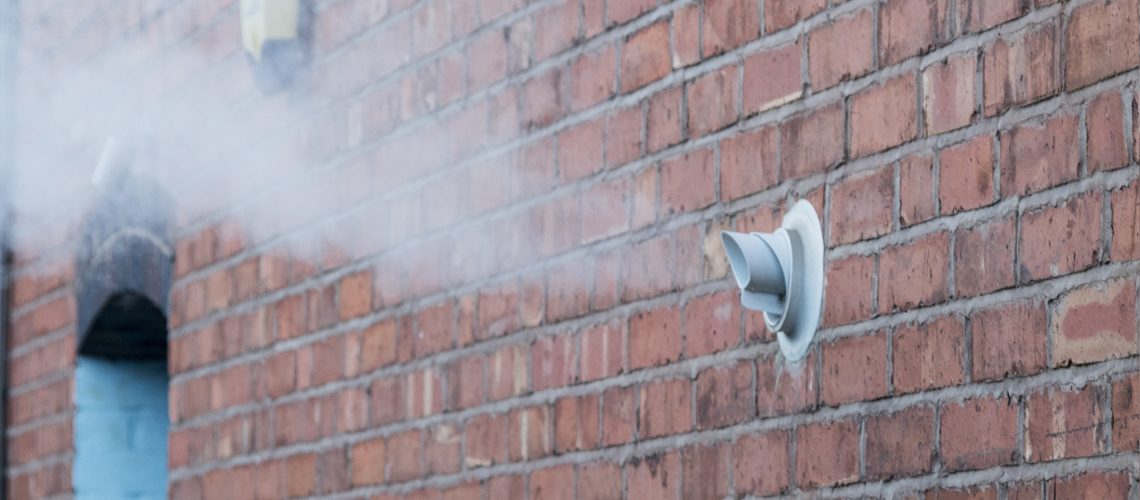The short answer to the question: “Is my boiler on fire?” Probably not. Many people can be alarmed with what a boiler is blowing out of the chimney or flue. So fear not, the boiler is most likely doing what it is supposed to. Unless you smell burning or see flames coming from the flue or chimney everything is ok*. If you want to find out what is causing this phenomenon then please read on.
Have you noticed how some boilers produce long plumes of steam from out of their flues? It can look quite alarming, especially if the boiler is running on maximum. Compared to older boilers it can seem as though something isn’t working correctly, or worse still, the boiler on fire! Fortunately, this isn’t the case and in this blog, we want to explain what exactly is making these new modern boilers behave in this way.
It’s all to do with efficiency.
Our country has been reliant on gas for domestic heating for over 100 years. We switched to a cleaner source of gas in the 1960s and now burn natural gas in our homes. The supply of natural gas is running out so in 2005 the decision was made to install high-efficiency boilers, known widely as condensing boilers. The clue to answering the question “Is my boiler on fire” is in the name: Condensing. Let us explain what is going on.
Your boiler does what you do.
Think of it a bit like your breathe on a cold day. When you breathe in, you warm up the air from outside in your body, as you breathe out, the warm breathe reacts with the cold air and you see a plume or water vapour. You will notice this doesn’t happen when the air temperature outside is too warm. The air humidity also plays an important part in the condensing process. When you breathe out, the air mixes with the outside air. Once that mixture reaches 100% humidity it condenses. Our breath leaves our body at about 90% humidity which is why it condenses further away from our mouths. This is the same principles as a condensing boiler.
For those of you who would like to know more about why your breath condenses visit http://www.sciencebits.com/exhalecondense
Why doesn’t it happen to older boilers?
Modern condensing boilers extract more heat from the gas that is burnt. This means that the flue gases that expel to outside are much cooler in temperature than those from an older non-condensing boiler. When the flue gases mix with the cooler outside air they condense quicker. Flue gas temperature on modern condensing boilers are less than 100ºC. As soon as the flue gases contact the cold humid air, they begin producing long plumes of tiny water droplets. Generally, the colder the outside temperature the greater the plumage. Older boiler with flue gases in excess of 100ºC take longer to cool to the required temperature outside and dissipate before condensing.
So, if you see these long trails of steam coming from a boiler, don’t worry.
If you would like advice or a quote on a new boiler please click here
*If you notice any smells or flames call the emergency services immediately

